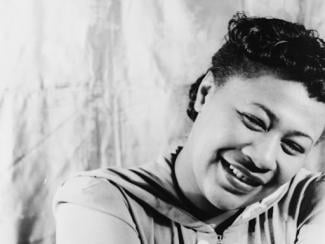
On April 10, 1933, a white New York judge sentenced a 15-year-old Black girl to three to five years at Hudson’s New York State Training School for Girls. Why? Because she was “ungovernable.” Her name was Ella Fitzgerald.
Fitzgerald and many other girls detained there escaped abuse at home only to find more abuse at this school. In fact, despite having a legendary voice in the making, Fitzgerald couldn’t even be in the school’s revered all-white choir.
“She hated the place,” a former superintendent said of Fitzgerald. “She had been held in the basement of one of the cottages once and all but tortured.” Eventually, Fitzgerald ran away. She found herself singing and dancing on the streets for change. She even won Amateur Night at Harlem’s Apollo Theater in 1934.
Today, institutions where Fitzgerald was held are no longer called “reformatories.” They’ve been rebranded into therapeutic boarding schools. But coercion, surveillance, and abuse are reported to still run rampant there. That doesn’t mean they don’t operate and feel like prisons.
The prison, foster, and reform “care” systems can’t and don’t keep Black youth safe. If youth like Fitzgerald have to escape to shine - and many don’t survive - what does that say? Don’t our youth deserve better?